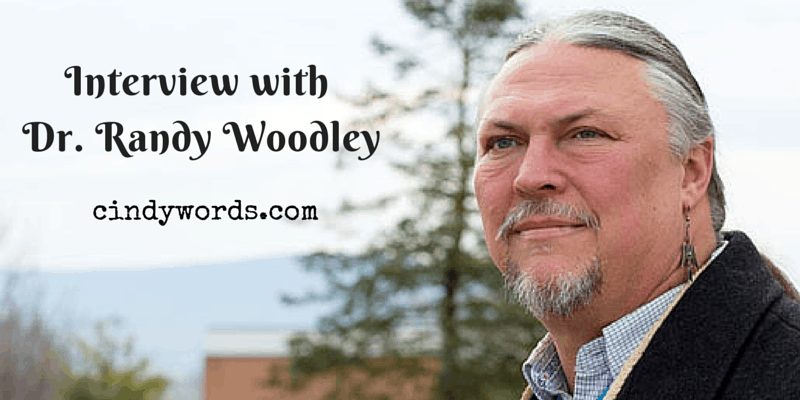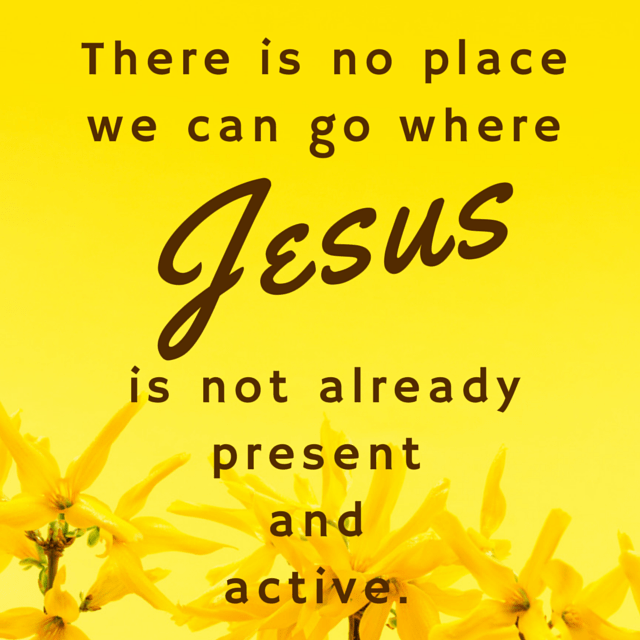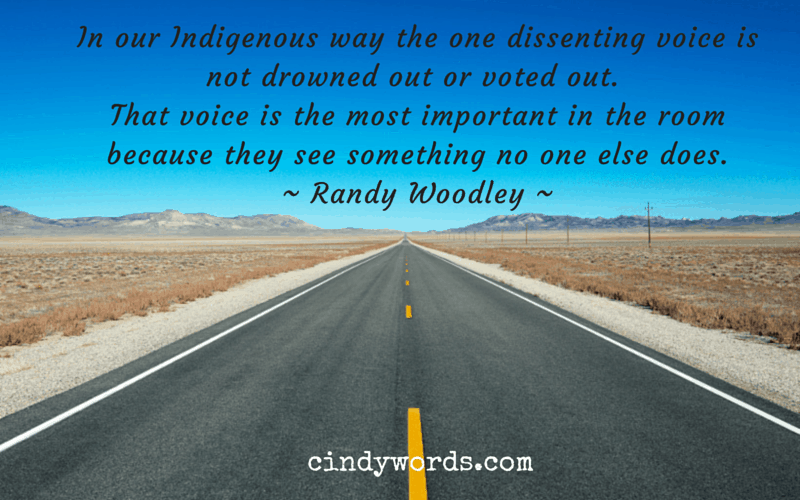
Interview with Dr. Randy Woodley
April 23, 2015
I have the immense honor of interviewing Dr. Randy Woodley here today. Randy is a Keetoowah Cherokee Indian descendent. He currently serves as Distinguished Professor of Faith and Culture and Director of Intercultural and Indigenous Studies at George Fox Seminary in Portland, Oregon. (Ph.D. Intercultural Studies). Randy is active in ongoing concerns of emerging faith expressions, diversity, eco-justice, reconciliation, ecumenism, inter-faith dialogue, mission and indigenous peoples.
He is a former pastor and continues to be involved in grassroots ministry/activism and community organizing. Him and his wife, Edith, have developed a holistic model of service among Native Americans. They currently serve a local Native American gathering at their small farm in Newberg, Oregon.
I am a seminary graduate and am familiar with theological conversations both in academia and popular culture. It has become increasingly frustrating to me how much of those conversations are dominated by white, men of power. I think we are indebted to thinkers like Randy who provide a sorely needed alternative perspective from outside of that euro-centric lens. I have learned so much from him and am thrilled to have him answer some of my questions. I hope his answers inspire and challenge you as they did me.
Q:
Randy, it is such an honor to have you with us. I talk often on this blog about the importance of including a diversity of voices within Christian theology and church. I argue that we each possess a partial understanding of God and only together can we experience greater faithfulness. What are some of the ways First Nations culture contribute to the western dominated theological landscape?
“Thanks for your questions. From my experiences and my own studies I think I can safely say that in many regards First Nations, and generally Indigenous peoples around the world, have values that come much closer to the teachings of Jesus than do most Euro-American settler-colonial societies. Settler-colonialism often openly espouse the values of Christ and an allegiance to Christ but it does not deliver those values. The American and British empires certainly claimed to be Christian at the time of their colonizing. They promised stability, prosperity, security, civilization and salvation-all of which sound like God’s shalom intentions. But instead they delivered national and even global imbalance, oppression, violence, greed, and destruction. What is needed is shalom or, said in an Indigenous way, harmony. This very shalom-esque construct was already present among most of our First Nations but the Euro-Americans could not imagine the fact that we already had a society more Christ-like than they did.
No society is perfect, including First Nations, but some are much closer to Christ shalom-kingdom than others. A number of fundamental flaws exist within Western societies that westerners cannot easily identify themselves. It’s perhaps easier for First Nations to see them as we are looking in from the outside, especially after 500 years of observation. Some of the problems include: Physical Dualisms; Moral Dualism; Extrinsic Categorization; Hierarchies; Utopianism; Homogeneity; Anthropocentrism; Triumphalism; Selfishness; Patriarchy and Individualism. All of these, I argue, are in contrast to Christ’s teachings and yet are embedded within the Western psyche, including within Western Christianity and its theology. Mirroring invasion, their theology also wreaks havoc on others, creating discord and imbalance. The Western theological landscape cannot see beyond its own shadow. How will they learn if they don’t listen? Who better to teach the Lawyer than the Samaritan? Who better to teach the White man than the American Indian? We have been waiting over a half a millennium for them to listen…perhaps that time is coming sooner than later.”
Q:
I am a missionary convert and some of my readers are missionaries. As a Chinese person, a lot of the “American” Christianity preached to me didn’t make sense to the Chinese sensibilities within me. What would you say to missionaries who are trying to impact the world globally for God in the way they communicate their faith?
“I am a missiologist so I’m happy to share what I consider a basic set of assumptions for all mission. From my understanding of Jesus, mission doesn’t merely mean sharing a truth, it means to invite people into a shalom community. I teach something I call my 10 Missiological Imperatives in my mission courses:
1. There is no place we can go where Jesus is not already present and active.
2. Since Jesus is active everywhere, the first responsibility of mission among any culture is not to teach, speak or exert privilege but to discover what Jesus is already doing in that culture.
3. Realize God expects two conversions out of every missional encounter: 1) our conversion to the truths in their culture, and 2) their conversion to the truth we bring to the encounter.
4. Our humility as servants of Jesus should naturally lead us to first convert to the truths in their culture wherever we see Jesus is at work.
5. Through the work of culture guides (people of that culture), earnest study, prayer and experiential failures, it is our responsibility to first adapt to and then embrace their culture, and as much as possible, their worldview.
6. Realize that conversion is both instantaneous and a process, (the Biblical idea of salvation is becoming wholly healed) and think through those implications as you begin to consider your timelines. Then, throw out your timelines.
7. During this time also read, study, discuss with others ways that you can continue to deconstruct your own worldview and culture. This is a long, painful and yet freeing process.
8. Our own process of conversion may take years, so be patient with yourself and with God.
9. When and if, they invite us to share the gospel they have noticed us living out, then the process formally known as cultural contextualization should occur.
10. Their process of conversion may take years, so be patient.”
Q:
Ever since I heard you speak of this, I have paused before using the commonly used phrase, “Kingdom of God.” Can you explain again why you avoid the phrase KOG? What is your alternative and why?
“I think Kingdom is used to express an outdated construct. It is often associated with non-Christian ideals of conquest, war, hierarchies and classism. That does not sound like Jesus to me. The Reign of God or time/place where God is in charge, can mean something very different than the “kingdom” metaphor. Jesus taught of a community where he is in charge. That community includes all of creation, not simply humans. Jesus, the Creator, came to restore all of creation. I like to say “Community of Creation” as an alternative. I feel it is more representative of Jesus’s teachings.”
Q:
Much of the injustices done to Native Americans and other oppressed people groups are a result of a large imbalance of power. You want to see us move away from hierarchy towards sharing power. However, people with power don’t seem to want to let it go. When the system is structured to favor those in power, it seems to compound from generation to generation. Do you see any signs of hope for genuine lament, reconciliation, and a more equal way forward?
“Actually, yes, of late, I do. About 7 years ago when I fist began teaching as a career in the academic environment, I was fortunate to have had so many years of pastoring, mission work and community organizing, especially among the very poor and among traditional First Nations. Having had those many years of experience set me up, unknowingly at first, as a teacher who is teaching for change. I had no idea how much of academia was geared towards perpetuating homeostasis. I was surprised to realize how much teaching is done simply to maintain the system. As a person expecting students to use what we discussed in class in very practical ways, I began to notice a few here and there who actually took it to heart and made positive changes in church and society. The kind of changes I feel make Jesus happy. Today, I see many more students responding than I did before. I tell them right from the beginning, my expectation is nothing less for them to change the world. Hopefully, my classroom is becoming an incubator for the Community of Creation to flourish (Jesus’ shalom-kingdom).
My personal encounters with national social movements and active unrest concerning the injustice, racism, and poverty that Western Settler-colonialism has “gifted” our society makes me feel like change is in the air. I lived through the sixties, I remember what that felt like. The only way to dismantle unjust power is through community organizing and prayer. I think we are seeing the dawn of a new day when followers of Jesus will be equipped to lead such movements. But you are right, those exercising unjust power do not give it up easily. The leaders of such movements can only be successful if they follow the ways in which Jesus dealt with power. Success requires unity of vision. It requires perseverance. It especially requires egalitarianism, everyone having a voice. In our Indigenous way the one dissenting voice is not drowned out or voted out. That voice is the most important in the room because they see something no one else does. Successful dismantling of power requires strategy-“wise as serpents-harmless as doves.” It requires sacrifice. It requires humility. And, it requires much prayer. No one person possesses all these attributes. That’s why everyone must have a voice and everyone must be very tolerant. The giftings of The Jesus Way are only found in the group, not in isolated individuals with a good plan. We, as followers of Jesus, should begin by practicing on ourselves. We need a renewed look at our own churches, denominations, para-church organizations and religious institutions. Christianity exercises a lot of unjust power so we should begin by dismantling our own systems of injustice. Then, we may be qualified to lead others in the greater society towards just change.”
Q:
And lastly, just because I have mad respect for your subversiveness against Christian Celebrity culture, can you please share with us the message you give to people who invite you to speak at Christian conferences?
“Here’s the email I generally send out for events outside my region:
Congratulations to you on the ministry event you have chosen!
Over the past few years I have made a decision, except under extreme circumstances, to speak only in my general region, There are many reasons for this including: the time I am required to be away from my own family and my community; my belief that most meaningful theology and ministry is be done locally and developed relationally to be effective; the fact that I have chosen no longer to travel by air; to dissent from the celebrity speaker system in the church and, to assist you in saving you the financial resources spent in bringing in “out of town” celebrity guest speakers, which could be used more effectively in your local “on the ground ministry” rather than for what most often become simply inspirational speakers.
On the other hand, Edith and I are committed to mentoring relationships that are built over time which will eventually transform local Indigenous and other communities wherever they may be. If you are interested in this type of commitment please let us know and we will keep you abreast of our schools and events at Eloheh Farm and Village here in Newberg, Oregon or notify you if, or when, we are available to come to your region.
Thanks for considering me for this event. I hope instead, you will chose someone locally/regionally with whom you can learn together and grow relationally. If I can be of help in recommending someone, please let me know.
I was reading the Gospel of Mark about 3 years ago. I began to notice how Jesus dealt with crowds…he walked away from them. Almost every time a crowd gathered around him, Jesus took off. Obviously Jesus had a “branding problem.” Or perhaps Jesus understood something we have yet to learn, namely, local church, local theology, local relationships, connected to the land on which we live, produce more results and more life in the long run than celebrity appearances, inspirational and motivational speeches and shticks. I remember the Christian celebrity of television evangelism, concerts, books, etc. over the years and I don’t see how they have done much to build the community of creation (Christ’s Kingdom). On the other hand, I’d say they have done much to diminish the reputation of Christ and cheapen the Faith. “Hollywood Christianity” is now alive and well in the celebrity Christian speaking circuit. Everyone is writing another book or developing another shtick so they can be more famous and asked to speak at more conferences. These events are entertaining but when compared to the values of Jesus, they most often don’t measure up. I’m not saying these events can’t be made to be meaningful somehow, I’m sure there are meaningful alternatives. I‘m just saying by and large, the gather and smather event oriented conferences are not the best way to spend our time and resources. “Hey, could we Skype him in for $50 instead of flying him in for $3,000?”
A few years ago I called for a boycott of all Christian conferences that had no or only a few women or speakers of color (tokens) as main speakers. It had a bit of positive result (not nearly enough) but now I’m asking that we simply boycott the conference culture of Christian celebrity and concentrate our efforts on doing both local and extra-local justice and mercy in inter-denominational and inter-faith cooperation. Let’s stop talking so much and organize ourselves into action.
I’m just saying maybe it’s time, when the crowds gather to hear the latest, we just walk away.”



